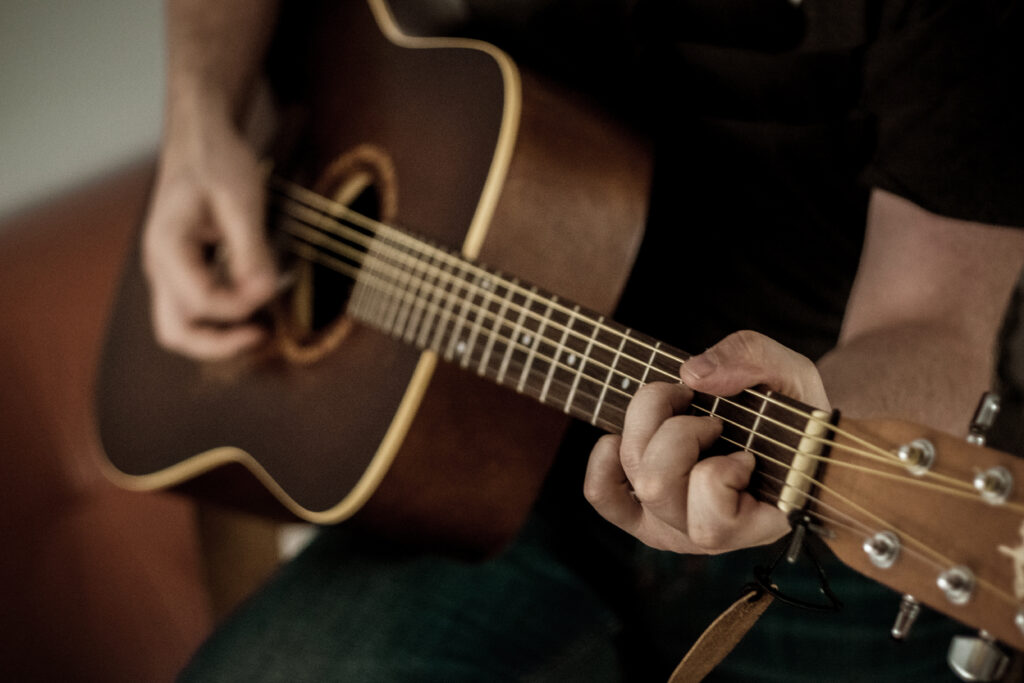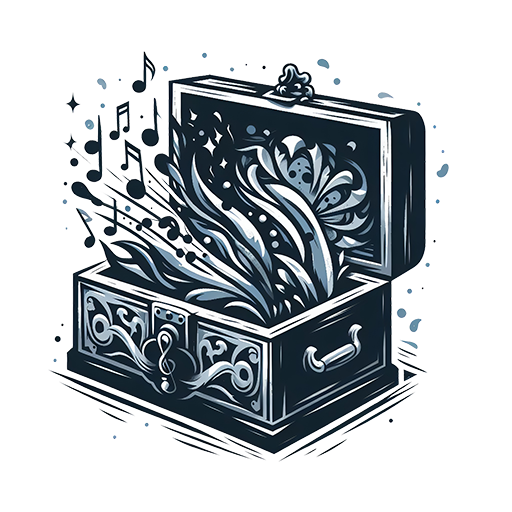
1. Introduction
Music is such a big part of our everyday lives that most people can’t go even a single day without listening to it. I personally can’t remember a single day in my life listening to music wasn’t a part of. Some people love music so much they even learned how to play an instrument, and add their own creativity to it. Those who love playing, creating and innovating music are called musicians. So, if you are asking yourself “How do I become a musician?” then read on and enjoy the ride.
2. What is a Musician?
Ha! I knew you would ask me that question.
You can make the argument that being a musician is a profession, and you would be right. But it is not only that. Contrary to what a lot of music muggles (non-musicians… that was a Harry Potter reference…Ok, I’ll stop with the jokes now…) think, you don’t have to make money with music to be considered a musician.
When I use the term “musician” I refer to a person who knows how to create music, whether by knowing how to play an instrument, by singing or by hitting the table with his hands. I mean, you are not a carpenter because you make money with that skill. You are a carpenter because you know how to do it. The same goes for being a musician.
3. “Should I become a musician” you ask?
If you’ve ever found yourself inspired by the musical prowess of others, and felt the urge to join them, maybe there is a dormant musician lying inside you. Do you love singing in the shower or can’t resist doing the “air guitar” when listening to music? If the answer is yes, maybe you really should consider going down the rabbit hole known as the world of music.
However, if you feel hesitant to embark on your own musical journey, you’re not alone. For every person who decides to become a musician there are at least ten others who never will. The fear of making mistakes, the uncertainty of where to begin, and the absence of a formal musical background can create a cycle of self-doubt.
Embarking on the journey to become a musician can feel like stepping into uncharted territory. How are you supposed to be confident you’ll succeed when you’ve never played an instrument or composed a melody before? Well, you can’t know. Like with any decision in life, you just have to make the first step and see where it will lead you.
With that said, you can either embrace the challenge of becoming a musician, opening the door to a world of creative expression or you can stay stuck in a loop of uncertainty, questioning your ability to create real music.
Breaking free from this loop requires a shift in mindset. Instead of fixating on the fear of failure, you should focus on enjoying the journey and the feeling of happiness it brings you.
So, should you become a musician? If you love music and want to contribute your energy, creativity and feelings to it, than learning an instrument is the best way to do that.
3. 1. No Barriers except in Our Own Mind
Being a musician doesn’t mean you have to spend thousands of dollars on instruments and equipment to be able to play. You can use two wooden sticks, hit one with the other in a rhythmic manner, and make music. You can whistle and make music. If you like technology, you can even use your mobile phone to make music. The options are endless.
Yes, having money to buy yourself that new model of a guitar can be satisfying, but that by itself doesn’t make you a musician.
The only thing that is stopping you from becoming a musician is YOU.
Stop standing in your own way and start doing. Play, sing or bang the drum. Doesn’t matter. Just start creating music.
4. Become a musician: A How-To Guide
Now that you’ve finally decided to say “Yes” to the idea of becoming a musician, let’s explore practical steps to guide you on your melodic journey.
4.1 Start with Passion
Identify the instrument that resonates with your soul. Whether it’s the vibrant strumming of a guitar, the elegant keys of a piano, or the expressiveness of your voice, let your passion guide your choice. Each instrument has some advantages and disadvantages. Some are easier to learn and some are harder to learn. However, in the end choose the one you know will make you happy playing it.
[If you don’t know which musical instrument you want to learn, then check out this article:How to choose a musical instrument to learn?]
4.2. Gather Knowledge
You can start learning how to play an instrument by trial and error, by watching free tutorials on the internet, by paying for a tutor or even by enrolling in a music school. If you have the money, I would recommend finding a good private tutor who will teach you the fundamentals of playing the instrument you chose to learn. Once you master the basics you will have the right foundation on which you can build the library of your musical knowledge. With the fundamentals covered, you can then easily upgrade your knowledge by watching a bunch of online videos, reading music books or listening to lectures for advanced students. Whichever path you choose, immerse yourself in the world of music. Understand the fundamentals of music theory, explore different genres, and study the works of revered musicians. Be open-minded and be prepared to learn from anyone and anything. Knowledge builds the foundation of your musical confidence.
4.3. Your Goal and Daily Practice Rituals
Setting a goal for yourself is an important step as you embark on your journey to become a musician. It’s simple: know what you want to achieve. This clarity will influence how much time and effort you need to invest in practice.
Decide on what success looks like for you. Is it about being able to play a few of your favorite tunes around a campfire, or do you aspire to perform on stage to a large audience? Your goal doesn’t need to be grand or complicated; it just needs to be specific to your aspirations.
Realistic short-term goals are a good starting point. Conquering one song or a specific piece of music can be a goal that keeps you focused and yields tangible progress. On the other hand, if you’re planning to make music your career, then your practice must reflect that level of commitment.
Determine how many hours are feasibly dedicated to practice each day or week based on your objective. Occasional practice may suffice for leisurely playing, but intensive and frequent sessions are required for more professional aims.
Set a goal that strikes the right balance – challenging enough to push you forward, but attainable enough to avoid discouragement. That way, each practice session builds you closer to your ultimate aim, one note at a time.
4.4. Embrace the Melody of Failure
Let’s get one thing straight: making errors is part of the deal, whether you’re a rookie holding your first guitar pick or a seasoned pro who’s riffed more times than you’ve tuned.
Think of mistakes as your not-so-silent partners in the learning process. They’re there to remind you, quite loudly sometimes, that to err is human, and to rock, divine. Slipping up on a chord or missing a beat isn’t the end of the world – it’s the universe nudging you to do better next time.
Adopting a light-hearted attitude toward these inevitable slip-ups can be your saving grace. Missed a note? Laugh it off. Played the wrong key? Laugh it off and put it up to experience. Every mistake is a lesson in disguise, and taking them too seriously only amplifies the frustration.
Embrace your blunders with humor, brush off the embarrassment, and proceed with confidence. Your musical path is unique, and every wrong turn is just an opportunity to explore new directions. You are you, and that’s your greatest asset. Keep strumming, keep drumming, and keep playing – because the true melody lies in perseverance, not perfection.
4.5. Don’t compare yourself to others – learn from them!
Falling into the trap of comparing yourself to other musicians can be easy, but it’s essential to remember that everyone’s musical journey is unique. Your pace and progress are yours alone – they can’t be matched to someone else’s rhythm.
If someone else can play faster or more accurately, tip your hat to their skill, but remember, it doesn’t diminish your journey or worth. They have their style, you have yours.
While it’s natural to notice the abilities of others, use them as inspiration, and not as benchmarks for your self-worth. Instead, learn techniques and gather insights from fellow musicians, and replace envy with education.
Appreciate your individuality and embrace your musical voice. Strive for good, consistent development. After all, the pursuit of perfection often leads to frustration, not fulfillment. Be kind to yourself and remember that the ‘perfect musician’ is a myth. Your authenticity is what makes you a true musician. Keep playing, keep learning, and most importantly, keep being you.
5. Conclusion
The main goal of becoming a musician is to enjoy playing an instrument, and to have an outlet for creativity. If music brings a smile to your face then you are on the right path. Promise me one thing though, just don’t lose yourself in the phantasy of becoming a famous rock star who makes a lot of money.
Never lose sight of what is most important, and that is to be happy. If your love for music leads you in the direction of becoming a famous superstar, so be it. However, don’t make it a priority by which you measure your success as a musician.

2 thoughts on “How to become a musician?”